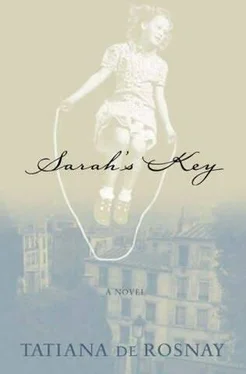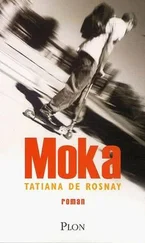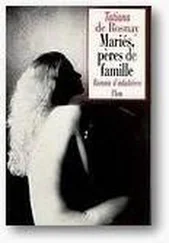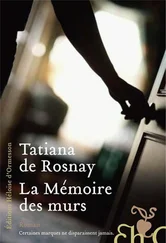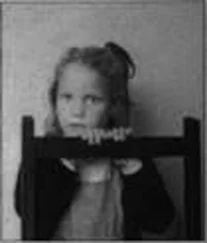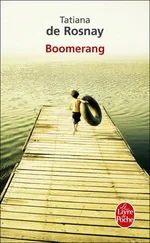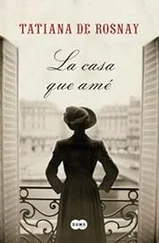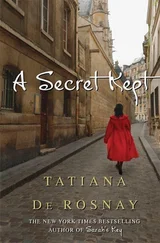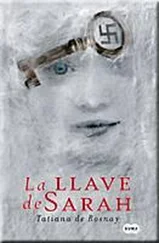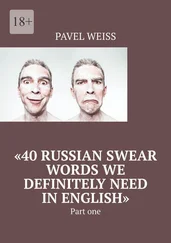The nurse nodded. She smiled a tiny sad smile.
“I understand. There is nothing I can do. I’m so sorry.”
She got up, headed toward another family. The girl stopped her, grabbing her sleeve.
“Please, when are we going to leave?” she asked.
The nurse shook her head. She caressed the girl’s cheek softly. Then she moved on to the next family.
The girl thought she was going to go crazy. She wanted to scream and kick and yell, she wanted to leave this dreadful, hideous place. She wanted to go back home, back to what her life had been before the yellow star, before the men had banged on their door.
Why was this happening to her? What had she done, or her parents done, to deserve this? Why was being Jewish so dreadful? Why were Jews being treated like this?
She remembered the first day she’d worn her star to school. That moment when she had walked into the class, and everybody’s eyes had been drawn to it. A large yellow star the size of her father’s palm on her small chest. And then she saw that there were other girls in the class who had the star too. Armelle wore one as well. It had made her feel a little better.
At recess, all the girls with the stars huddled together. They were pointed at by the other pupils, by all of those who used to be their friends. Mademoiselle Dixsaut had made a point of explaining that the stars should not change anything. All the pupils were to be treated the same way as before, star or no star.
But Mademoiselle Dixsaut’s speech had not helped. From that day forward, most girls stopped speaking to the children with the stars. Or worse still, stared at them with disdain. She could not stand the disdain. And that boy, Daniel, had whispered to her and Armelle in the street, in front of the school, his mouth cruel and twisted, “Your parents are dirty Jews, you are dirty Jews.” Why dirty? Why was being a Jew dirty? It made her feel ashamed, sad. It made her want to cry. Armelle had said nothing, biting her lip till the blood came. It was the first time she had seen Armelle look afraid.
The girl wanted to rip off the star, she told her parents she refused to go back to school with it. But her mother had said no, that she should be proud of it, she should be proud of her star. Her brother had thrown a fit because he, too, wanted a star. But he was under six, explained his mother patiently. He had to wait another couple of years. He had wailed all afternoon.
She thought of her brother in the dark, deep cupboard. She wanted to take his hot little body in her arms, to kiss his curly blond hair, his plump neck. She gripped the key as hard as she could in her pocket.
“I don’t care what anybody says,” she whispered to herself. “I’ll find a way to go back and save him. I’ll find a way.”

AFTER DINNER, HERVÉ OFFERED us some limoncello, an ice-cold Italian liqueur made with lemon. It had a beautiful yellow color. Guillaume sipped his slowly. He had not said much during the meal. He seemed subdued. I did not dare bring the Vel’ d’Hiv’ up again. But it was he who turned to speak to me as the others listened.
“My grandmother is old now,” he said. “She won’t talk about it anymore. But she told me everything I need to know, she told me everything about that day. I think the worst thing for her was having to live on without the others. To have to continue without them. Her entire family.”
I could not think of what to say. The boys were silent.
“After the war, my grandmother went to the Hotel Lutétia on the boulevard Raspail, every day,” continued Guillaume. “That’s where you had to go to find out if anyone had returned from the camps. There were lists and organizations. She went there every day and waited. But after a while, she stopped going. She began to hear about the camps. She began to understand that they were all dead. That no one would come back. Nobody had really known before. But then, with survivors returning and telling their stories, everybody knew.”
Another silence.
“You know what I find most shocking about the Vel’ d’Hiv’?” Guillaume said. “Its code name.”
I knew the answer to that, thanks to my extensive reading.
“Operation Spring Breeze,” I murmured.
“A sweet name, isn’t it, for something so horrible?” he said. “The Gestapo had asked the French police to ‘deliver’ a certain number of Jews between sixteen and fifty years old. The police were so intent on deporting the maximum number of Jews that they decided to ameliorate the orders, so they arrested all those little children, the ones born in France. French children.”
“The Gestapo hadn’t asked for those children?” I said.
“No,” he replied. “Not at first. Deporting children would have revealed the truth: it would have been obvious to all that Jews were not being sent to work camps, but to their deaths.”
“So why were the children arrested?” I asked.
Guillaume took a sip of his limoncello.
“The police probably thought that children of Jews, even if they were born in France, were still Jews. In the end, France sent nearly eighty thousand Jews to the death camps. Only a couple of thousand made it back. And hardly any of the children did.”
On the way home, I could not get Guillaume’s dark sad eyes out of my mind. He had offered to show me photographs of his grandmother and her family, and I had given him my phone number. He had promised to call me soon.
Bertrand was watching television when I came in. He was lying flat out on the sofa, an arm under his head.
“So,” he said, barely taking his eyes off the screen, “how were the boys? Up to their usual standards of refinement?”
I slipped off my sandals and sat on the sofa beside him, looking at his fine, elegant profile.
“A perfect meal. There was an interesting man. Guillaume.”
“Aha,” said Bertrand, looking at me, amused. “Gay?”
“No, I don’t think so. But I never notice that anyway.”
“And what was so interesting about this Guillaume guy?”
“He was telling us about his grandmother, who escaped the Vel’ d’Hiv’ roundup, back in 1942.”
“Hmm,” he answered, changing channels with the remote control.
“Bertrand,” I said, “when you were at school, were you taught about the Vel’ d’Hiv’?”
“No idea, chérie.”
“That’s what I’m working on now for the magazine. The sixtieth anniversary is soon.”
Bertrand picked up one of my bare feet and began to massage it with sure, warm fingers.
“Do you think your readers are going to be interested in the Vel’ d’Hiv’?” he asked. “It’s the past. It’s not something most people want to read about.”
“Because the French are ashamed, you mean?” I said. “So we should bury it and move on, like them?”
He took my foot off his knee and the glint in his eye appeared. I braced myself.
“My, my,” he said with a devilish grin, “yet another chance to show your compatriots how devious we Frogs were, collaborating with the Nazis and sending those poor innocent families to their deaths. Little Miss Nahant bares the truth! What are you going to do, amour, rub our noses in it? Nobody cares anymore. Nobody remembers. Write about something else. Something funny, something cute. You know how to do that. Tell Joshua the Vel’ d’Hiv’ is a mistake. No one will read it. They’ll yawn and turn to the next column.”
I got up, exasperated.
“I think you’re wrong,” I seethed. “I think people don’t know enough about it. Even Christophe didn’t know much about it, and he’s French.”
Bertrand snorted.
“Oh, Christophe can hardly read! The only words he deciphers are Gucci and Prada.”
Читать дальше
